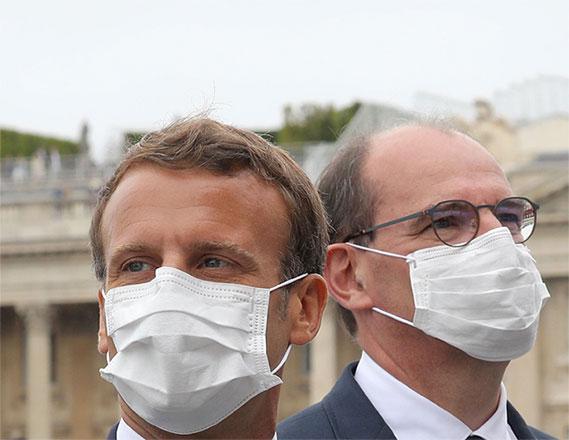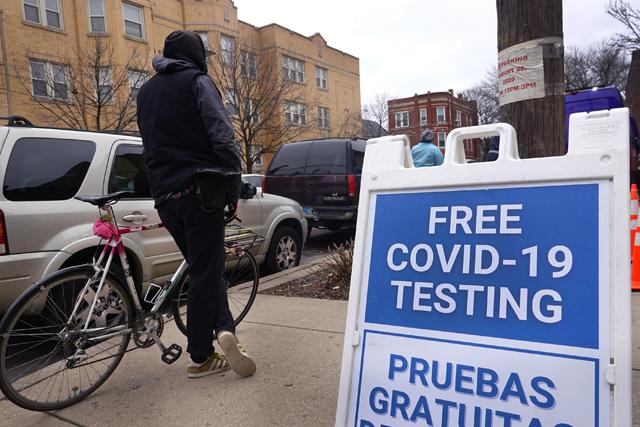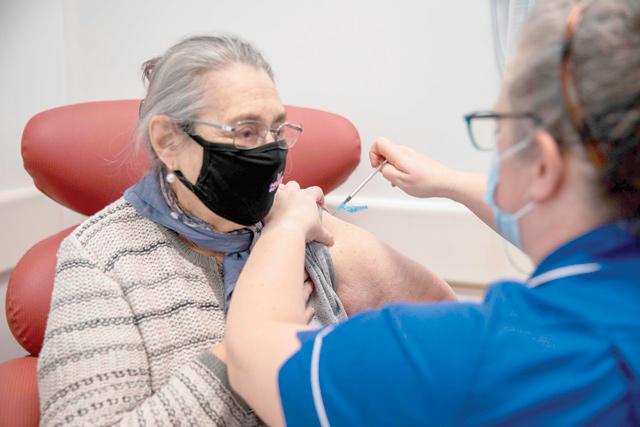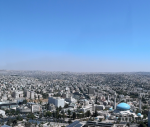You are here
New vaccine breakthrough lifts global hope against pandemic
By AFP - Nov 17,2020 - Last updated at Nov 17,2020

In this file photo taken on August 5, a volunteer is tested before being given the Moderna's mRNA-1273 Coronavirus Efficacy (COVE), in Detroit, Michigan (AFP photo)
WASHINGTON — Global hopes of overcoming the coronavirus pandemic were boosted on Monday after a second vaccine was found to be nearly 95 per cent effective, bringing much-needed optimism to a world facing surging infections and a raft of new restrictions.
The news from the US biotech firm Moderna comes after similar results were announced last week for a vaccine candidate developed by pharma giant Pfizer and its German partner BioNTech.
European stock markets surged on Monday on the hopeful news, building on a boom sparked by the Pfizer news one week ago.
Yet, with neither vaccine likely to be widely available for months, governments around the world are still moving forward with unpopular but life-saving restrictions on free movement, gatherings and business.
Globally, infections have soared past 54 million with more than 1.3 million deaths.
Moderna, whose results stem from a clinical trial of more than 30,000 participants, plans to apply for emergency approval of its vaccine and expects to have approximately 20 million doses ready to ship in the US by the end of the year.
“This positive interim analysis from our Phase 3 study has given us the first clinical validation that our vaccine can prevent COVID-19 disease, including severe disease,” said Stephane Bancel, Moderna’s CEO.
Like the Pfizer candidate, the vaccine involves injecting the body with strands of genetic instructions called “messenger RNA”, which tell cells how to fight the coronavirus.
While the breakthrough opens a chink of light at the end of the tunnel, experts caution there are still difficult and dangerous months ahead.
“A vaccine on its own will not end the pandemic,” warned World Health Organisation head Tedros Adhanom Ghebreyesus.
Supply will initially be limited to healthcare workers and other vulnerable populations, which could offer major help to hospital systems but will “still leave the virus with a lot of room to move,” he said.
British PM isolating
As scientists and pharma companies charge ahead on the vaccine front, governments are trying to slow the spread of the virus and protect strained hospital systems.
In hard-hit Europe curbs have returned — often in the face of protests — from Greece to Britain, where PM and COVID-19 survivor Johnson was self-isolating out of precaution Monday after coming into contact with an MP who later tested positive for the virus.
Johnson said he would lead the virus response from Downing Street despite the fact “that I’ve had the disease and I’m bursting with antibodies” after being hospitalised in April.
In Germany, which began a new round of shutdowns earlier in the month, Chancellor Angela Merkel is pushing for more measures, including masks in all schools and smaller class sizes.
Outside work or school, contact between people should also be “restricted to those from another fixed household”, under a proposal from Merkel’s office due to be put to regional leaders.
While new cases are plateauing in Germany, daily numbers, officials say, are still too high.
In France, which has been under partial lockdown for more than two weeks, health minister Olivier Veran warned the strict measures had slowed the disease but “we have not won against the virus yet”.
US reeling
Infections in the United States, the world’s worst-hit nation, show no sign of slowing after 1 million new cases in less than a week pushed the total number past 11 million.
The spikes have prompted new curbs while experts warn families against large gatherings for the upcoming Thanksgiving holiday.
A stay-at-home advisory was to come into force Monday in Chicago, while New York, the epicentre of the spring outbreak in the US, is also rushing to flatten a second curve.
President Donald Trump, already under fire for his pandemic response, has been blamed for further complicating efforts by refusing to concede and cooperate with President-elect Joe Biden’s transition team.
They are not even allowed to consult with the top government immunologist Anthony Fauci, who has noted the virus could kill tens of thousands more Americans by the time Biden takes office on January 20.
Australian cluster
Concerns of a resurgence also remain in parts of the world that have largely brought their caseloads under control.
Australia’s Adelaide, which had not seen a significant outbreak in seven months, reported that a new cluster of 17 cases were linked to a hotel used to quarantine travellers returning from overseas.
Authorities snapped back a roster of restrictions and suspended international flights into Adelaide.
The sudden curbs brought into question India’s upcoming blockbuster cricket tour from November 27.
In Hong Kong, the government further tightened restrictions from Monday on the number of people in bars and restaurants, to guard against a spike.
And Algeria, facing its own surge of infections, announced new restrictions on Sunday that close sport and cultural centres as well as beaches.
Related Articles
PARIS — French President Emmanuel Macron became the latest head of state to test positive for coronavirus on Thursday, forcing several other
WASHINGTON — Hopes for a first wave of vaccinations before the end of 2020 received a boost with US firm Moderna saying it was filing on Mon
LONDON — Britain became the first Western country to start a mass coronavirus vaccine campaign with a pensioner receiving the initial jab on

















